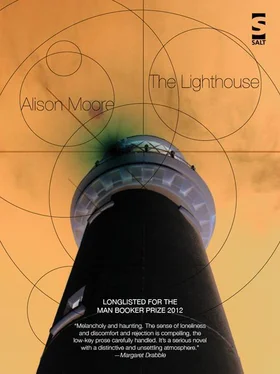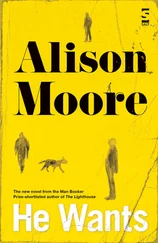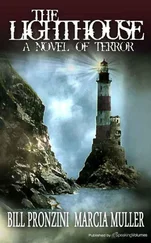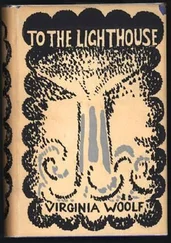At breakfast, Ida said, ‘Bernard, Therese has three children now, the girl and twin boys,’ and Ester studied his face.
Ida said to Ester, ‘You’ll lose your figure anyway, if that’s what you’re worried about.’
On Ester’s last visit with Bernard, Ida invited a girl for dinner. The girl came out of the kitchen with two plates of liver, putting one down in front of Ester and giving the other to Bernard. Ida, following her out with more food, said, ‘This is Liese. She is a nursery nurse, very fond of children. She is twenty, still young. Although when I was twenty I was already pregnant with Bernard.’
Ester and Bernard always argued on the drive back to Hellhaus.
Eventually, Ester suggested to Bernard that he go to his mother’s alone. She made some excuse the first couple of times, but after that she didn’t give a reason and he didn’t ask for one.
With or without Ester, Bernard always comes home in a bad mood, along with a pile of ironed underpants and paired socks. Ester imagines Ida saying to Bernard what a shame it is that Ester is too busy to come, and couldn’t a cheap cleaner have been hired for a couple of days to do what Ester does?
Ester finally opens her eyes and looks at her watch. She gets up and puts on some make-up and the same cleaning clothes she wore yesterday and goes into the bathroom. She runs the tap and fills the saucers of the Venus flytraps which stand on the ledge behind the sink. She brought just one with her from home — one of her mother’s plants — dividing and repotting until she had half a dozen. She waters them, and feeds them the dead insects she finds on the windowsills, tickling the leaves to make them close. She drops in flies which she has swatted. Not quite dead, they buzz furiously inside the tightly shut traps, and after a while there is silence. She puts her plants in the sunshine and talks to them, but still they sometimes die.
Opening a window, Ester smokes a cigarette and chats to her plants, her ash falling onto the expectant leaves. The sun is strong even at this hour. It is going to be a hot day.
After breakfasting alone and then checking out the honeymooners who have been there all week and have barely been out except to eat, she cleans their downstairs room. When she has finished, she wheels her cleaning trolley into the lift and goes back to the bar.
She sits on her stool and looks around. There are a couple of customers in. One is a stranger; the other is not. Without taking off her rubber gloves, she has her first gin of the day without tonic. She is hot; she is flushed and damp. She adds tonic to her next one, rolling the icy glass across her forehead and holding it against her breastbone, the condensation trickling into her cleavage.
The door behind her, the door to the guest rooms, swings open. She glances around and sees the boy she put in room ten walking through. He has his rucksack on his back, and his arm around the new girl. Ester goes over to her desk and checks him out, crossing him off in her ledger and returning his key to its hook on the wall. The girl stands at a distance, waiting for him. He seems to be making an effort not to look at Ester, glancing instead at the tired remains of the breakfast buffet beside them, at the sweating meat, the dried-out eggs. Then he and the new girl walk out into the street and the boy puts his arm around the girl’s shoulders and Ester watches them walking away.
She drains her glass and removes her rubber gloves.
‘Same again?’ asks the question mark, moving along the bar towards her. His breath smells of strong coffee. She looks at him, and at the clock, and nods. She leads the way to the lift and they travel up with the cleaning trolley.
She does not take him to her room, will not have him lying on Bernard’s side of the bed, lying naked where Bernard sleeps, with his head on the camphor-scented pillow. In room ten, the question mark lies down on the bed, on barely cooled sheets. He undoes his belt and pushes down his trousers, using his feet to get them as far as his ankles. He pulls one foot free but the other one gets stuck and his trouser leg trails from his pale pink shin and Ester thinks of sausage meat and sausage skin. He leaves on his T-shirt and his socks.
Ester, on the other side of the bed, undresses slowly in the bright room while he watches her. When the pieces of her clothing lie around her like the dropped petals of a half-dead rose, she climbs onto the bed.
By the time Ester returns to the bar, the girl is there, serving customers. Ester sits down on her stool and the girl says, ‘Bernard’s looking for you.’
‘Bernard’s not back until tomorrow,’ says Ester.
‘No,’ says the girl, ‘he’s back.’
Ester climbs carefully down from her stool. ‘Where is he now?’ she asks.
‘Upstairs,’ says the girl, ‘I think.’ She turns back to her customer and takes his money.
Ester walks to the lift. Her cleaning cart is still in there. She goes first to their private apartment and finds Bernard’s holdall on the end of the bed. She looks in the bathroom, the kitchenette and the little sitting room, but Bernard is not there.
She goes back downstairs and into the bar, picking up her rubber gloves. She goes into the kitchen where the chef is pounding cheap cuts of beef, tenderising steaks for dinner, pulping apples, and smashing black walnuts with a rolling pin, beating them beneath a tea towel to keep the shells from flying, to prevent the juice from staining the work surface.
Ester goes up in the lift again with her cleaning trolley and her rubber gloves. She collects fresh bedding and returns to room ten, cursing quietly to herself. Opening the door, she sees Bernard, who is already walking away from the mess on the bed, the mess he has made of this man who did not leave in time. Passing her in the doorway, Bernard pauses, and she feels the heat of him through his shirt and his breath against her cheek as he leans close to say, ‘Don’t let there be a next time.’

Futh wakes at dawn and can’t get back to sleep. He is painfully hungry but knows that the hotel is not yet serving breakfast. He gets up and goes to the table where the coffee-making facilities are and eats the biscuits. Then he makes a cup of instant coffee — coffee whose volatile aromatics have been lost and then replaced during the manufacturing process; coffee to which the smell of coffee has been added — and goes out onto the balcony in his pyjamas to drink it, watching the sun rise, its reflection in the river.
He feels dreadfully stiff and his feet are tender. He thinks seriously about skipping the final day of walking and instead going to Utrecht after all. It would mean arriving unannounced but, he thinks, he was invited. It should not be too difficult to remember the way to Carl’s mother’s house even without the address, but first he would have to pick up his car which is in Hellhaus. He wonders if he could get a bus to Hellhaus and then drive to Utrecht. He could take his suitcase with him on the bus rather than have it taken by transit and risk it arriving later than him and having to wait for it. If he did that he would not need to go to the hotel at all. He could telephone later from Carl’s mother’s house and explain his change of plan. If he left here straight after breakfast he might be in Utrecht by lunchtime. Carl, he recalls, would be home in the evening.
He drinks another cup of coffee on the balcony and then gets dressed and goes downstairs, hoping to find the proprietor to ask him for a bus timetable. There is no one about. He finds leaflets promoting places to visit, and a telephone directory in which he looks up his own name, finding other Fuths. But there are no bus timetables. The front door is open though and he wanders outside to look for a bus stop.
Читать дальше













